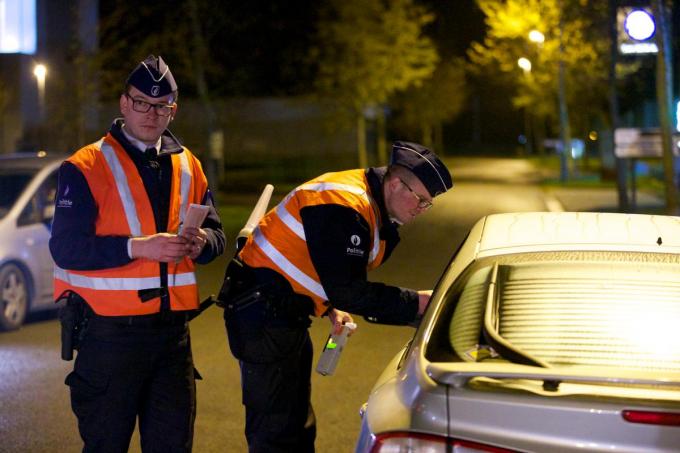Points-based driving licences are needed in Belgium to increase the strictness of punishments for people who commit repeated traffic offences, the Vias traffic institute has argued.
Traffic-related injuries and fatalities are once again at pre-pandemic levels, and Belgium continues to underperform when it comes to following up and punishing traffic offences that are not serious enough to take to court. Under the current system, drivers can collect as many fines as their finances allow in many cases.
"The points-based driving licence is one way of adequately following up on these offences," Vias said in a statement.
It is in favour of a system that works automatically on repeated minor offences up to a certain level. Once a driver commits traffic offences after a certain number of offences, they would automatically be transferred to the court, which will rule on the case.
Repeated offences should be linked automatically to various next steps, from rehabilitation measures, loss of driving licence, evaluation of a person's capability to continue driving, and others.
Link between unpunished offences and recidivism
The suggestion was the conclusion of a study on Belgium's current system and how it compares to that of neighbouring countries, and the benefits of the points-based driving licence by Vias institute, of which the findings were handed over to the Federal Mobility Minister Georges Gilkinet.
The main conclusion of the study was that Belgium is lagging behind when it comes to following up and punishing so-called "light traffic offences," for example speeding offences whereby the offender was driving less than 160 km/h on the motorway and drink-driving with an alcohol level of between 0.5 and 0.8 per mille.
Related News
- Record numbers of drivers under the influence of drugs
- Fines should match the severity of speeding violations, says Belgian mobility minister
"These are all offences that are usually settled with a fine, without taking into account previous convictions," Vias explained. "With stagnant road safety figures, as a society, we cannot tolerate drivers continuing to commit certain offences with impunity."
It added that the link between recidivism and increased accident involvement has already been demonstrated several times, which is why it is "necessary to systematically follow up on repeated offences."
Digital upgrade needed
As part of the system, the degree of automation decreases and the degree of personalisation increases when more and more serious offences are committed. "A combined system thus offers many possibilities, both in terms of education and in terms of sanctions."
Such a system already exists in Great Britain. Vias stressed that one unique up-to-date database is needed for the system to work. "It is therefore necessary to invest in IT infrastructure and data management," it concluded.

